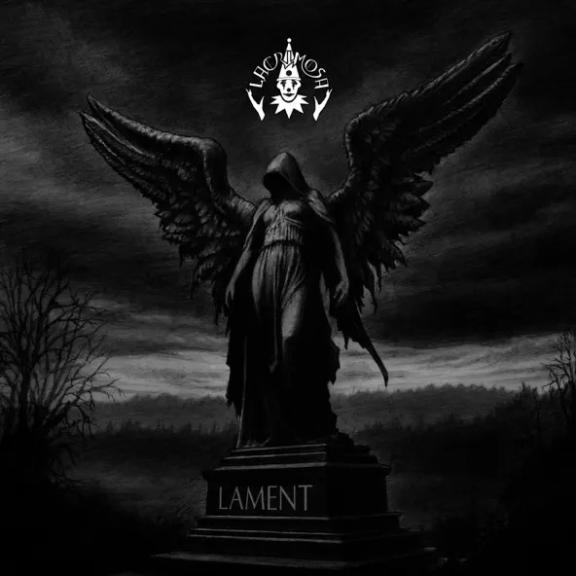When you're called Lacrimosa, releasing an album called Lament is pretty obvious. A well-oiled machine, the Swiss-based German-Finnish duo is back in the spotlight for their fifteenth album, featuring their usual themes with orchestration and saturated guitars that have made the band pioneers of symphonic metal, and dressed up as always in a magnificent artwork by Stelio Diamantopoulos - who has outdone himself, this cover being one of the band's most beautiful to date. This makes us all the more enthusiastic, given that the last two albums, Testimonium (review) and Leidenschaft (review), were pretty good.
It has to be said that Lament begins under the best of auspices. The title track, which opens the album, and Ein Sturm zieht auf have exactly the same restrained sorrow that we loved in Testimonium, showing a different Lacrimosa that knows how to touch without needing to go overboard after more than thirty years of musical maximalism. A bit of electronics, progressive orchestration, guitar and drums that are only there to add strength to a crescendo built with all the mastery Tilo Wolff is capable of work wonders on the twin tracks, carrying us along in their torment. The more energetic, guitar-driven Ein langer Weg also pleases us with its catchy, bittersweet lightness. Knowing Lacrimosa, we suspect that not everything will be equal, but at this stage we can see that this album has potential.
Alas, the band quickly revert to their old demons. Du bist alles was ich will is hollow and grandiloquent, with Tilo Wolff lamenting into the void for almost six minutes without the song taking off. Much more rousing, Avalon is cut out to be the album's hit, where Lacrimosa pulls out all the stops: menacing drum rolls, reverb, duet between Tilo Wolff and Anne Nurmi, unifying choruses, the inevitable instrumental bridge... Let's face it: we too are familiar with Nightwish's Once period, but we prefer the original, especially as these tricks are over twenty years old now. The clip's pile of clichés, reminding us once again that Lacrimosa has no sense of the ridiculous in this area, doesn't help matters. But let's be understanding: it's an easy song to grasp, there's an audience for it and Lacrimosa surely have bills to pay. Dark Is This Night, the traditional ballad sung in English by Anne Nurmi, seems all the more bland in tone and melody, given the excellent Celebrate The Darkness on Leidenschaft...
There is, however, one track that catches up with the middle of the album: Geliebtes Monster. Slow, grave and heavy as can be, its instrumentation dominated by orchestral instruments and bass immediately reminds us of Lacrimosa's darkwave beginnings. It's gloomy and even funereal, the kind of Lacrimosa we love, the pearl of the album.
However, the worst comes with the final third of Lament. Punk & Pomerol and In einem anderen Leben are exactly the kind of songs we hate from the band, where the combination of incisive but hardly original guitar speed and a coquettishly dressed-up sound produces a dreadful result that sounds wrong through and through. And when we leave the album on Memoria, it's with the impression of a reheated mix of the band's usual sounds and melodies.
So, Lament is one of Lacrimosa's least inspired releases. We don't hold this against the duo too much: firstly, because we're used to them being uneven, and secondly, because as always with them, there are some tracks we really liked, Geliebtes Monster in particular. A well-oiled machine, we say.







